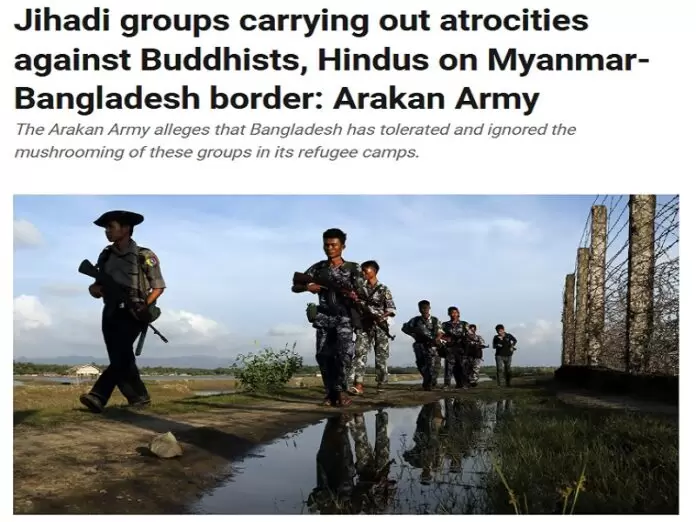Lost amidst the news of Syria’s epic collapse was the Arakan Army’s (AA) capture of the Myanmarese-Bangladeshi border last week, which is the first full frontier to fall to rebel forces since the latest phase of the world’s longest-running civil war began in early 2021. Readers can learn more about this conflict’s context here, which links to nine analyses over the past year. It also follows summer’s US-backed regime change in Bangladesh and its worsening ties with India, which can be read about here and here.
The reason why this development is so significant is because the AA previously accused Bangladesh of backing jihadist Rohingya terrorists against their home region’s Buddhists, which a source reiterated in comments to The New Indian Express after taking control of the border. The AA is comprised of Buddhists while the Rohingya are a Muslim minority in Myanmar’s Rakhine State (considered by the AA to be Arakan) who originated from Bangladesh. Their conflict is a thus “clash of civilizations” in a way.
The AA is also regarded as one of the most heavily armed and experienced rebel groups fighting against the Myanmarese military (Tatmadaw), which itself is heavily armed and experienced, thus making its latest victory all the more impressive and posing an even greater latent security threat to Bangladesh. After all, with the Bangladesh Armed Forces (BAF) distracted by the faux threat that they imagine India presents, the AA might consider cross-border strikes against alleged Rohingya terrorist camps.
At the very least, there’s no longer any politically feasible possibility of repatriating the Rohingya so long as the ultra-nationalist AA rules Rakhine State since there are credible fears for Muslim civilians’ safety, all of which could lead to this issue once again attracting international attention in the coming future. It’s highly emotive due to the civilian toll that the Tatmadaw’s prior anti-terrorist crackdowns caused, which critics condemned as ethnic cleansing and genocide, and the public can easily be reminded of it.
Bangladesh’s new US-backed rulers could also exploit this southern border crisis, even just the perception thereof, as the pretext for justifying more high-tech weapons purchases from China and comprehensively expanding cooperation with Pakistan, both of which are India’s traditional rivals. Any eruption of conflict between AA and BAF, including limited cross-border shelling and low-level raids, could also turbocharge Bangladesh’s military ties with the West and the US in particular.
Former Bangladeshi Prime Minister Sheikh Hasina claimed that one of the reasons for her foreign-backed ouster was that an unnamed Western country wanted to punish her for refusing to allow it to open up a military base. Most observers intuited that she was referring to the US. An exacerbation of Bangladesh’s southern border crisis with the AA, possibly spun by Dhaka as “unprovoked genocidal aggression by a Myanmarese-based terrorist group”, could accelerate talks on a US base for “self-defense” purposes.
India would therefore do well to closely monitor developments in this corner of its region since this seemingly minor event in Myanmar’s ongoing conflict could come to have outsized consequences for its security if it’s taken advantage of by China, Pakistan, and the US to expand their military influence there. Such an outcome could lead to more serious Bangladeshi-emanating threats to its Northeastern States with time, thus posing even greater challenges to its territorial integrity and sovereignty.







